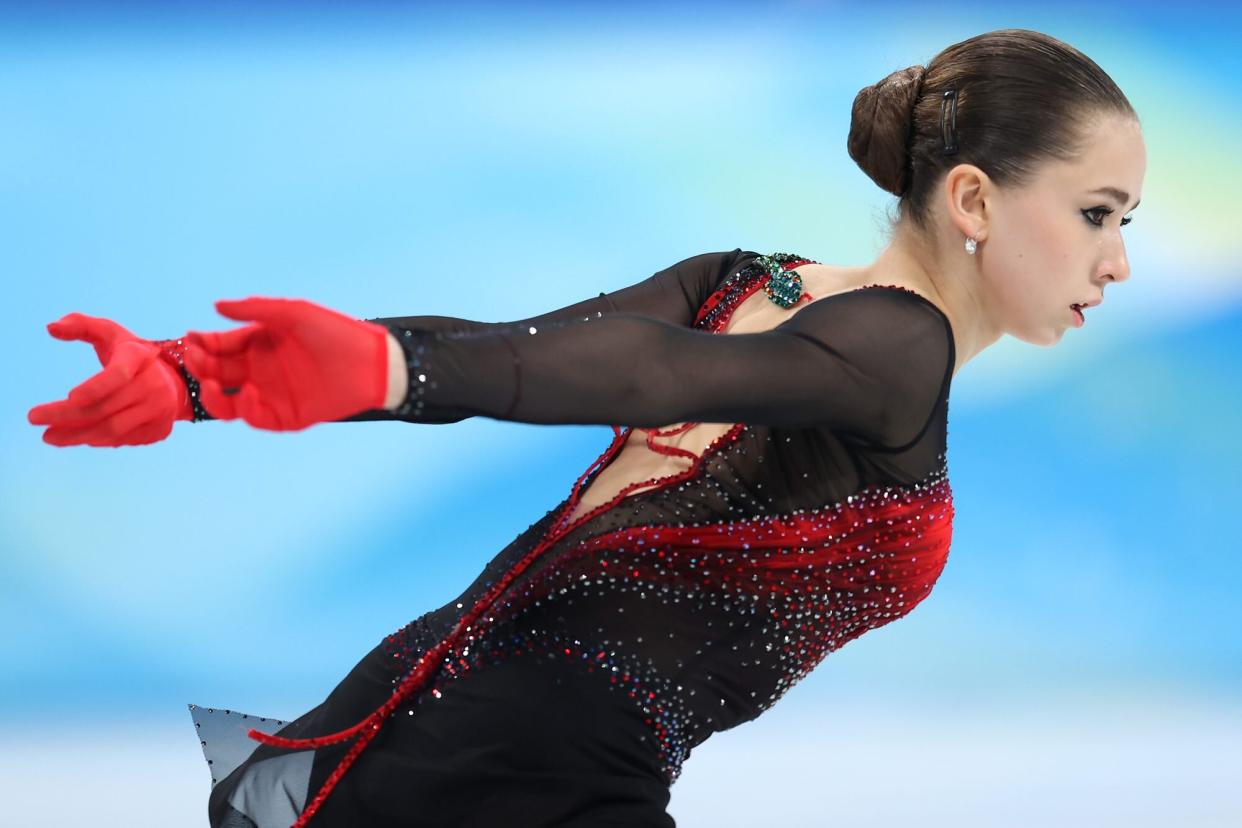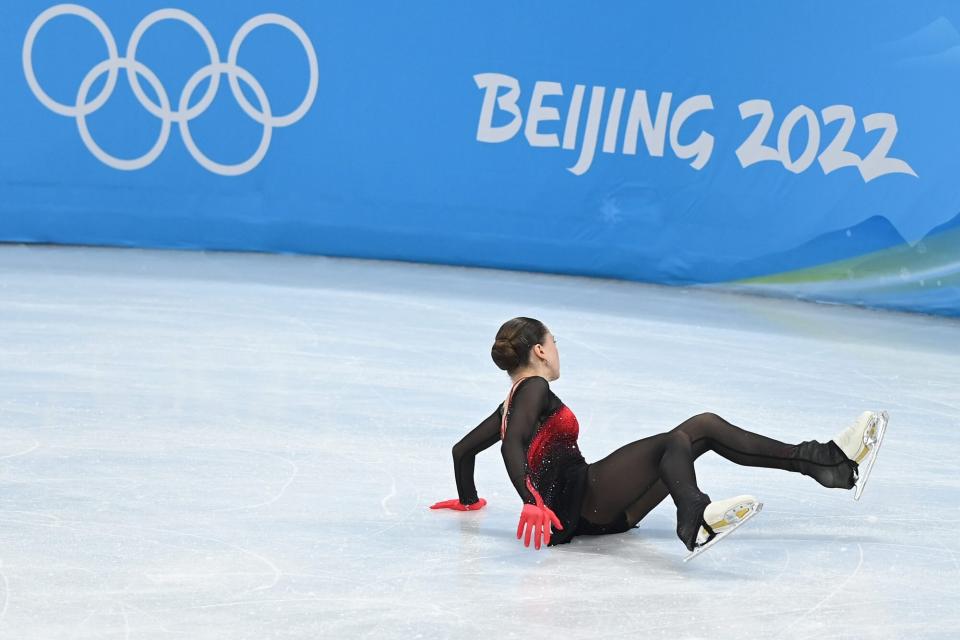Kamila Valieva Falls Multiple Times During Women's Figure Skating Final amid Doping Scandal

- Oops!Something went wrong.Please try again later.
Catherine Ivill/Getty Images Kamila Valieva
Russian figure skater Kamila Valieva landed just one of her three planned quadruple jumps during the women's free skate in their individual figure skating competition in Beijing on Thursday — a performance that comes amid controversy over a failed drug test.
Valieva, 15, took the ice at the Winter Olympics already in the lead after the women's short program with a score of 82.16. Early into the free skate, she fell to the ice. On her final quad jump, she fell again, receiving another deduction for hitting the ice.
After the performance, Valieva was visibly emotional.
RELATED: Team USA's Women Skaters Advance to Final, Kamila Valieva Leads After Doping Controversy

David Ramos/Getty Images Kamila Valieva
Ahead of the start of the women's competition, Tuesday, it was revealed that Valieva reportedly tested positive for the banned substance trimetazidine, a heart medication, back in December. Further reviews of Valieva's drug test showed that she also tested positive for two other heart medication drugs — hypoxen and L- Carnitine — which are not banned substances, but unusual for a teenage athlete to be prescribed.
RELATED: Olympian Karen Chen Checked in with Mentor Kristi Yamaguchi Weeks Before Her Beijing Debut
The Court of Arbitration for Sport (CAS) later announced that the Russian teen would not be suspended and could compete in the short program, a press release said. Part of Valieva's attorney's argument in her defense was that the banned drug entered Valieva's body accidentally and likely belonged to the athlete's grandfather, as he takes trimetazidine, according to Russian website The Dossier Center, USA Today reported.
For more on Kamila Valieva, listen below to our daily podcast on PEOPLE Every Day.
"There can be completely different ways how it got [into Valieva's body]," Kozmenko reportedly said in the hearing, according to The Dossier Center. "For example, [her] grandfather drank something from a glass, saliva got in (and) this glass was somehow later used by the athlete."
RELATED VIDEO: Apolo Ohno Supports Simone Biles & Michael Phelps in Putting Mental Health First: Athletes Are 'Still Human Beings'
Denis Oswald, chair of the International Olympic Committee (IOC) disciplinary commission, also told reporters on Tuesday that Valieva's "argument was this contamination happened with a product her grandfather was taking."
Even though the CAS declined to suspend the skater, if Valieva finishes in the top three in the women's figure skating event — which is likely — there will be no medal ceremony, the IOC said.
The CAS cited Valieva's status as a "protected person" (a minor) in making its decision in accordance with the World Anti-Doping Code.
"The panel considered that preventing the athlete to compete at the Olympic Games would cause her irreparable harm in the circumstances," CAS Director General Matthieu Reeb said in a statement, per the Associated Press.
Asked about why one would take the banned drug, Dr. Sean Heffron, a preventative cardiologist at NYU Langone's Center for the Prevention of Cardiovascular Diseases, told PEOPLE "the theoretical benefit of trimetazidine would be in the lead up to competition, in training." Heffron noted that "it might allow for an athlete to be able to train at a higher intensity for longer periods," though benefits would be marginal.
To learn more about Team USA, visit TeamUSA.org. Watch the Winter Olympics, now, and the Paralympics, beginning March 4, on NBC.

